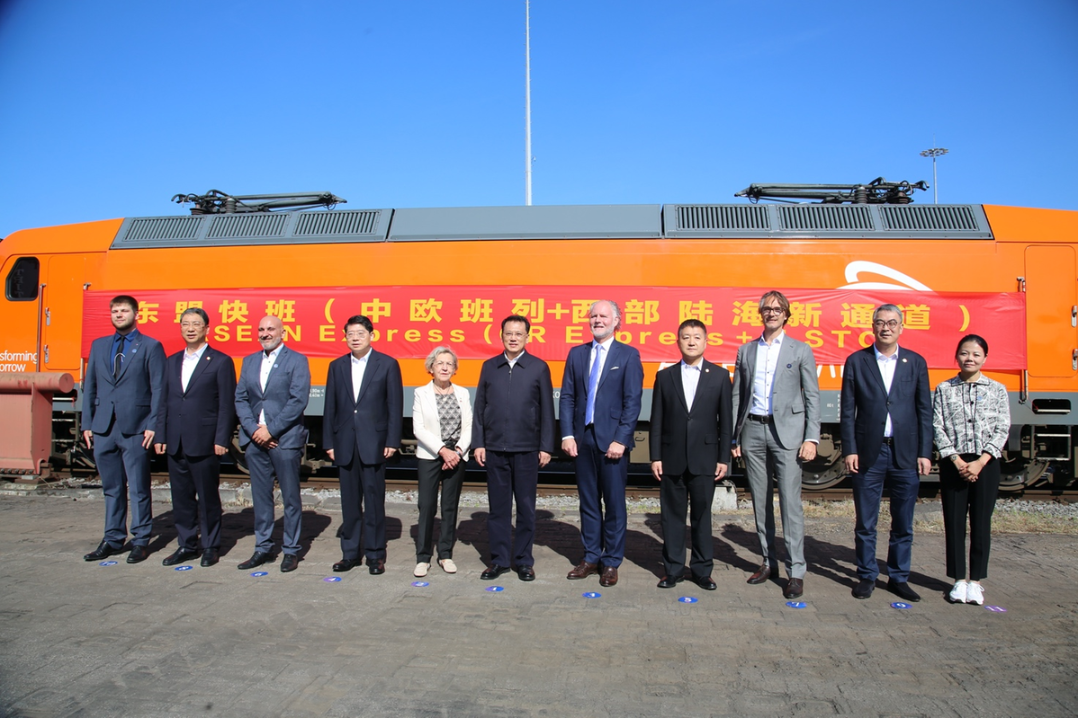Foxconn to build new business HQ in Henan
By FAN FEIFEI | China Daily | Updated: 2024-07-26 09:03
Foxconn Technology Group, the world's largest electronics manufacturing contractor, plans to invest 1 billion yuan ($138.5 million) to establish a new business headquarters in Zhengzhou, Henan province, as the company is diversifying revenue sources and reducing its heavy dependence on assembling Apple's iPhones.
With a construction area of approximately 70,000 square meters, the new headquarters will primarily focus on the trial manufacturing of electric vehicles and solid-state batteries, aiming to build a global high-end manufacturing industrial chain and an ecosystem for strategic emerging industries, Foxconn said.
The company has signed a strategic partnership with the Henan provincial government. According to the agreement, Foxconn will accelerate the development of EVs, energy storage batteries, digital health and robotics in the province.
Setting up a new business headquarters in Zhengzhou serves as a very important part of Foxconn's new business development on the Chinese mainland, the company said. The EV production center will provide manufacturing services for renowned domestic and foreign automobile brands, with the goal of building the Zhengzhou Airport Economy Zone into a "core production base for Foxconn's new energy vehicle segment", it added.
In recent years, Foxconn has been concentrating on its "3+3 strategy" — EVs, digital health and robotics — which are three emerging industries underpinned by three new technologies, namely artificial intelligence, semiconductors and new-generation mobile communications.
Foxconn, formally known as Hon Hai Precision Industry Co, is a key contract manufacturer for Apple products. It has major production bases in Shenzhen, Guangdong province and Zhengzhou.
Roger Sheng, vice-president of research at US market research company Gartner, said Foxconn is diversifying its business layout and marching into new fields in a bid to wean itself off a heavy reliance on churning out mobile phones amid sluggish growth in the global handset market.
"Foxconn has accumulated rich experience in intelligent manufacturing and the production of precision electronic components, which will help it gain a competitive edge in manufacturing EVs," Sheng said, adding that Foxconn's advanced abilities in making consumer electronics for Apple and other tech firms could be applied to the EV segment.
However, Sheng said the company still faces intense competition from domestic EV makers, such as Nio and BYD, and traditional automakers, which are doubling down on efforts to launch new models of EVs and expand production capacity.
Zhang Xiang, an auto sector researcher at the North China University of Technology, said, "As the growth in the global smartphone industry is slowing down, Foxconn hopes to seek new business growth points and make a strategic transition by making forays into emerging fields, including EVs and solid-state batteries."
Zhang said the company has gained some advantages in precision components manufacturing, capital, technologies and talent management, but it lacks related experience in the production of EVs and energy storage batteries.
Data from market research company International Data Corp showed that global smartphone shipments increased 6.5 percent year-on-year to 285.4 million units in the second quarter. Samsung captured the top position, accounting for 18.9 percent of global market share, while Apple came in second with a 15.8 percent share, backed by improved performance in China and other key regions.
























